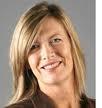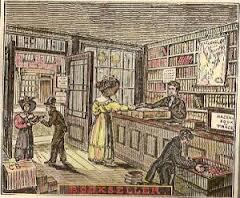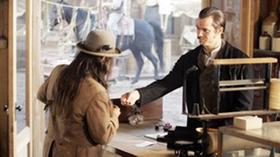 "Where's your village? What makes up your village?" asked Kathleen Noonan last week in a Brisbane Courier-Mail piece headlined "Shopkeepers are the heart of the community that we call home." Published on Australia's National Bookshop Day, the essay has been making the book trade social-networking rounds here in the U.S. ever since. And for good reason.
"Where's your village? What makes up your village?" asked Kathleen Noonan last week in a Brisbane Courier-Mail piece headlined "Shopkeepers are the heart of the community that we call home." Published on Australia's National Bookshop Day, the essay has been making the book trade social-networking rounds here in the U.S. ever since. And for good reason.
"Just look up your local shop on the Internet or drop in," Noonan advised, noting that she would be "pretending to be a bookseller" behind the counter at Avid Reader bookshop, "hopefully just popping books in brown paper bags, saying knowing things like, 'Oh, the symbolism in that one's magical'--and not actually in charge of tricky credit card transactions."
She wasn't just writing about booksellers, however. Noonan explored the concept of being a shopkeeper now: "We're not talking rustic cutesy row of shops here but the village each of us has in our daily lives, in our routine, that actually helps us survive in a big city. Dealing with the sheer size of the city and chaotic intensity means you have to make your own village, a space where you know people and chat to shopkeepers on a daily basis--your favorite sandwich maker, your dry cleaner.... At the core of these villages are shopkeepers." Shopkeepers have not traditionally garnered such high praise. Adam Smith sounded a little snarky in the 18th century: "To found a great empire for the sole purpose of raising up a people of customers, may at first sight, appear a project fit only for a nation of shopkeepers. It is, however, a project altogether unfit for a nation of shopkeepers, but extremely fit for a nation whose government is influenced by shopkeepers."
Shopkeepers have not traditionally garnered such high praise. Adam Smith sounded a little snarky in the 18th century: "To found a great empire for the sole purpose of raising up a people of customers, may at first sight, appear a project fit only for a nation of shopkeepers. It is, however, a project altogether unfit for a nation of shopkeepers, but extremely fit for a nation whose government is influenced by shopkeepers."
As did Henry David Thoreau in the 19th century: "When sometimes I am reminded that the mechanics and shopkeepers stay in their shops not only all the forenoon, but all the afternoon too, sitting with crossed legs, so many of them--as if the legs were made to sit upon, and not to stand or walk upon--I think that they deserve some credit for not having all committed suicide long ago."
 |
|
| HBO | |
I've spent much of my life as a shopkeeper, and I always bristled at the idea that the term was a pejorative. This may come from watching too many westerns, where shopkeepers are traditionally portrayed as either obsequious, sleeve garter-wearing cowards or the widows of obsequious, sleeve garter-wearing cowards. The HBO series Deadwood struck a less insulting shopkeeper chord with Timothy Olyphant's fierce portrayal of Seth Bullock, a man who wants to trade his gunslinging past for a new life as a hardware store shopkeeper, though choosing a lawless South Dakota settlement for his venture complicates things a bit. Imagine an armed Bernard Black.
Customers do not witness the complexity of a shopkeeper's day. Many bookstore patrons, for example, see only an ideal job that involves bookish conversations in a soothing environment, and good booksellers sustain the myth by remaining calm and cordial, even as their work day--an endless cycle of shelving, ordering, straightening, cash register duty and other responsibilities--devolves into an angst-inducing blur. Bookstore patrons don't need to know about any of this, of course.
Shopkeepers play an essential role in fostering our sense of community. As Noonan observed, in addition to "providing a retail service, these shopkeepers make up your village." She also cited author David Malouf's recent observation that "at the heart of a village is often a good bookshop."
"Bookshops are havens. I reckon you are never too scruffy, hungover, or bruised and bewildered to slouch into a bookshop," Noonan concluded. "Books are the friends you don't have to dress up for. They are the lovers that require no stroking of ego or anything else. They are the teachers that set no exams. Bookshops aren't just bookshops. They are ideas shops."
And shopkeepers? Let's just say that in these perilous bookselling times, shopkeeping and community building are not for faint-hearted, sleeve garter-wearing cowards. Maybe it was always so. A 1922 New York Times article, headlined "Shopkeeper of Shakespeare and Company," described legendary Parisian bookseller Sylvia Beach as "efficient and determined, but with her efficiency and determination there was understanding besides." To me, these sound like the core elements of a bookseller... and a shopkeeper... and a village. --Robert Gray, contributing editor

